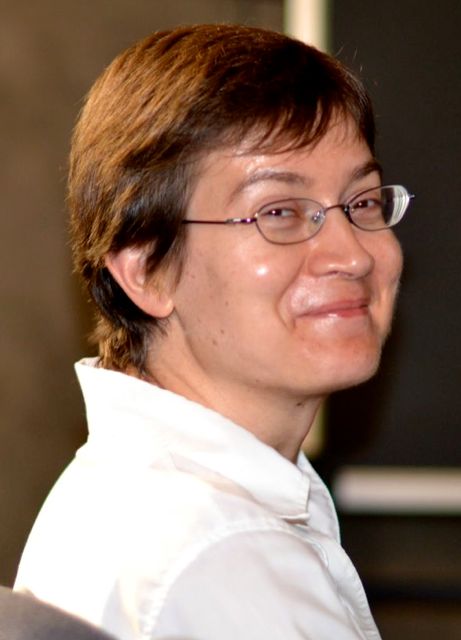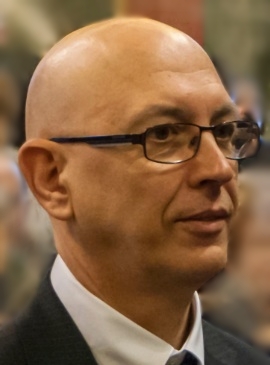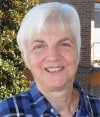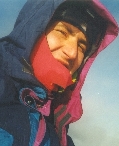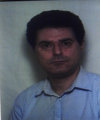Studying at the University of Verona
Here you can find information on the organisational aspects of the Programme, lecture timetables, learning activities and useful contact details for your time at the University, from enrolment to graduation.
Academic calendar
The academic calendar shows the deadlines and scheduled events that are relevant to students, teaching and technical-administrative staff of the University. Public holidays and University closures are also indicated. The academic year normally begins on 1 October each year and ends on 30 September of the following year.
Course calendar
The Academic Calendar sets out the degree programme lecture and exam timetables, as well as the relevant university closure dates..
| Period | From | To |
|---|---|---|
| 1° Q - 2° anno e successivi | Sep 29, 2003 | Nov 28, 2003 |
| 2° Q | Jan 12, 2004 | Mar 12, 2004 |
| 3° Q | Apr 5, 2004 | Jun 11, 2004 |
| Session | From | To |
|---|---|---|
| Extra term | Dec 17, 2003 | Dec 17, 2003 |
| Winter term | Mar 17, 2004 | Mar 17, 2004 |
| Summer term | Jul 22, 2004 | Jul 22, 2004 |
| Autumn term | Sep 22, 2004 | Sep 22, 2004 |
| Period | From | To |
|---|---|---|
| All Saint's Day | Nov 1, 2003 | Nov 1, 2003 |
| Christmas holidays | Dec 22, 2003 | Jan 6, 2004 |
| Easter holidays | Apr 8, 2004 | Apr 13, 2004 |
| Patron Saint's day festivity | Apr 12, 2004 | Apr 12, 2004 |
| Labour Day | May 1, 2004 | May 1, 2004 |
| Italian Republic Day festivity | Jun 2, 2004 | Jun 2, 2004 |
| Summer holidays | Jul 26, 2004 | Aug 31, 2004 |
Exam calendar
Exam dates and rounds are managed by the relevant Science and Engineering Teaching and Student Services Unit.
To view all the exam sessions available, please use the Exam dashboard on ESSE3.
If you forgot your login details or have problems logging in, please contact the relevant IT HelpDesk, or check the login details recovery web page.
Academic staff
Study Plan
The Study Plan includes all modules, teaching and learning activities that each student will need to undertake during their time at the University.
Please select your Study Plan based on your enrollment year.
2° Year activated in the A.Y. 2004/2005
| Modules | Credits | TAF | SSD |
|---|
4° Year activated in the A.Y. 2006/2007
| Modules | Credits | TAF | SSD |
|---|
5° Year activated in the A.Y. 2007/2008
| Modules | Credits | TAF | SSD |
|---|
| Modules | Credits | TAF | SSD |
|---|
| Modules | Credits | TAF | SSD |
|---|
| Modules | Credits | TAF | SSD |
|---|
| Modules | Credits | TAF | SSD |
|---|
Legend | Type of training activity (TTA)
TAF (Type of Educational Activity) All courses and activities are classified into different types of educational activities, indicated by a letter.
Sytems of Information Elaboration (2006/2007)
Teaching code
4S00028
Teacher
Credits
5
Language
Italian
Scientific Disciplinary Sector (SSD)
ING-INF/05 - INFORMATION PROCESSING SYSTEMS
Period
1st quadrimester (for 2nd and 3rd years of degrees in IT, for the 2nd year of degrees in applied mathematics and for the 4th and 5th years of specialised degrees) dal Oct 2, 2006 al Dec 1, 2006.
Location
VERONA
Learning outcomes
Scopo del corso è presentare le tecniche per modellare e dimensionare un sistema di calcolo valutando l'impatto che i singoli componenti hanno sulle prestazioni complessive in particolare dal punto di vista delle prestazioni del sistema di rete. Questo obiettivo viene raggiunto in due modi: imparando a valutare le prestazioni di un sistema digitale composto da dispositivi esistenti sul mercato (CPU, memorie, dischi, rete, ecc.) e imparando a modellare e progettare dispositivi digitali ad hoc adatti a rispondere ad esigenze specifiche (ASIC, dispositivi programmabili sul campo) utilizzando una metodologia di progetto TLM.
Program
* Architetture reali:
o Famiglie microprocessori Intel
o Apparati di Rete
o Architetture parallele
o Architetture distribuite
* Analisi delle prestazioni:
o Indici di valutazione delle prestazioni
o Metriche di valutazione delle prestazioni
o Prestazioni di un sistema distribuito
* La modellazione dei sistemi Hardware/Software:
o La progettazione TLM
o Il linguaggio SystemC per la modellazione di sistemi digitali
o Sintesi automatica da SystemC
o La modellazione di una rete con NS2
o La modellazione dei sistemi real-time
* Valutazione delle prestazioni dei sistemi digitali:
o Prestazioni di una rete
o Prestazioni di un sistema hardware/software
o Prestazioni di un sistema real-time
* Esperienze industriali:
o La piattaforma embedded TVBlob
* Laboratorio:
o Modellazione/simulazione in SystemC
o Sintesi automatica con SystemC
o Modellazione di una rete in NS2
o Cosimulazione HSN per apllicazione VOIP
o Modellazione simulazione di un terminale mobile
Il corso viene svolto in 32 ore di lezione e 12 ore di laboratorio. Le attività pratiche vengono svolte utilizzando le attrezzature hardware e software presenti nel laboratorio EDA (Electronic Design Automation) e nel Dipartimento. Durante il corso saranno effettuate presentazioni da parte di aziende del settore della progettazione di sistemi di elaborazione.
| Author | Title | Publishing house | Year | ISBN | Notes |
|---|---|---|---|---|---|
| Hennessy, Patterson | Computer Architecture: A Quantitative Approach (3rd edition) (Edizione 3) | Morgan Kaufmann | 2003 | 1558605967 | |
| Franco Fummi, Mariagiovanna Sami, Cristina Silvano | Progettazione Digitale (Edizione 2) | McGraw-Hill | 2007 | 8838663521 |
Examination Methods
Le competenze teoriche vengono verificate con una prova scritta scomposta, durante il corso in due prove intermedie. Le attività di laboratorio mettono lo studente in grado di comprendere maggiormente la competenze teoriche proposte e sono misurate con un elaborato che permette di integrare il voto della prova scritta. Gli eventuali elaborati vengono di norma completati entro la fine del corso.
Teaching materials e documents
-
 Dispense
(html, it, 18 KB, 06/02/07)
Dispense
(html, it, 18 KB, 06/02/07)
-
 Elaborati
(pdf, it, 503 KB, 05/12/06)
Elaborati
(pdf, it, 503 KB, 05/12/06)
-
 Presentazione corso
(pdf, it, 2079 KB, 09/10/06)
Presentazione corso
(pdf, it, 2079 KB, 09/10/06)
-
 Programma dettagliato I quad.
(html, it, 32 KB, 29/10/06)
Programma dettagliato I quad.
(html, it, 32 KB, 29/10/06)
Type D and Type F activities
Documents and news
-
 Documento ufficiale
(pdf, it, 21 KB, 25/06/03)
Documento ufficiale
(pdf, it, 21 KB, 25/06/03)
Modules not yet included
Career prospects
Module/Programme news
News for students
There you will find information, resources and services useful during your time at the University (Student’s exam record, your study plan on ESSE3, Distance Learning courses, university email account, office forms, administrative procedures, etc.). You can log into MyUnivr with your GIA login details: only in this way will you be able to receive notification of all the notices from your teachers and your secretariat via email and soon also via the Univr app.
 andrea.acquaviva@univr.it
andrea.acquaviva@univr.it
 +39 045 802 7059
+39 045 802 7059
